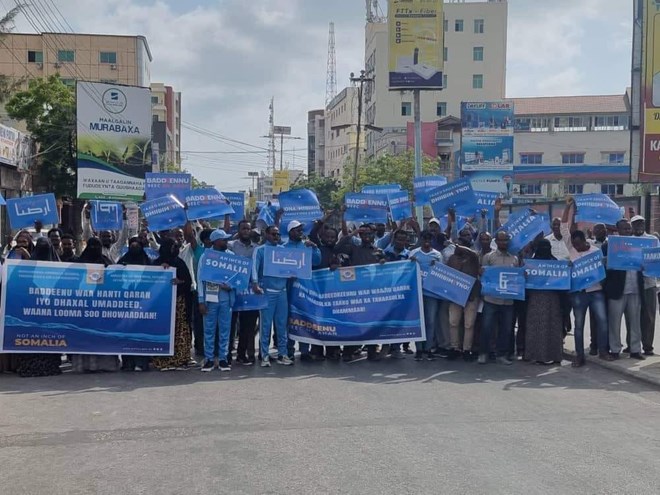MOGADISHU, Somalia – Ethiopians living in Somalia have become the subject of physical violence, verbal threats and intimidation since Somaliland consented to give Ethiopia access to its coastline at the beginning of this year, members of the Ethiopian community tell VOA Somali Service.
Under the deal, reached on New Year’s Day, Ethiopia will be able to lease 20 kilometers (12.4 miles) around the port of Berbera, on the Gulf of Aden, with access to the Red Sea for its naval and commercial shipping needs for 50 years. In exchange, Ethiopia would consider recognizing the self-declared republic of Somaliland as an independent country and give Somaliland’s government an undetermined share in state-owned Ethiopian Airlines.
The deal has drawn harsh criticism from Somalia’s federal government, which sees Somaliland as a part of its territory. Mogadishu called the deal “an act of invasion” and promised to protect the country’s sovereignty. There have also been pro- and anti-deal demonstrations in Somaliland.
Through its official spokesperson, Ali Mohamud Rage, al-Shabab militants also harshly denounced the deal, in a move seen as al-Shabab playing up Somali nationalism to garner support.
On Monday, authorities in the southwestern Somali town of Beled Hawo said six Ethiopians were among seven people killed in an overnight attack by suspected al-Shabab militants.
The district commissioner of the town, Abdirashid Abdi Arog, told VOA Somali that gunmen attacked a compound, killing five women and two men.
The six slain Ethiopians were ethnic Oromo, while the seventh victim was a Somali woman, Arog said. Six other Ethiopians were injured in the attack, he added.
The anti-Ethiopian sentiment is affecting Ethiopian refugees and migrants in Somalia.
“So far, we have not seen physical threats against us. But orally, the tension is there. Those threatening us always say that we will be deported back to Ethiopia because Ethiopia wants to forcibly take a piece of land from Somalia,” Sharabi Abdi Burow, a Ethiopian refugee in the Somali town of Bossaso, told VOA Somali.
Sakina Aden Bahar is a 40-year Ethiopian refugee who now runs a coffee shop in Bossaso. Her husband died a year ago. Because of the controversial deal, she said she now feels threatened.
“When my customers discuss about the Ethiopia-Somaliland deal, some of them told me that they would not buy my coffee because they are angry over the Ethiopian prime minister’s policies towards Somalia,” she told VOA.
Since the threat against the Ethiopian refugees emerged, a number of scholars and members of the community have spoken out in support of refugee rights. Mustafe Yusuf, a lawyer, is one of them.
“These refugees deserve to exercise their basic rights, including freedom of movement, protection, education and health. They should not be discriminated or affected by politics,” Yusuf said.
Hayat Mohamud Abdi, a Somali scholar, said innocent refugees must not be targeted for political reasons.
“Somalis have been and continue to be refugees and migrants across the world. I think Somalis in Somalia should treat with their Ethiopian guests the way Somalis are treated. Ethiopian refugees should not be involved into the maritime dispute between Somalia and Ethiopia.”
The Ethiopian refugees in Somalia, mainly ethnic Oromo, have mostly gone to Puntland and Somaliland because of those territories’ access to the Red Sea.
Many refugees hope to reach the Arabian Peninsula in search of a better life and opportunities. However, many remain stuck in Somaliland and Puntland after abandoning hopes for migration due to financial problems, tightening of travel restrictions and the war in Yemen.
This report originated from Somali Service Weekly Friday Discussion Program.
VOA





